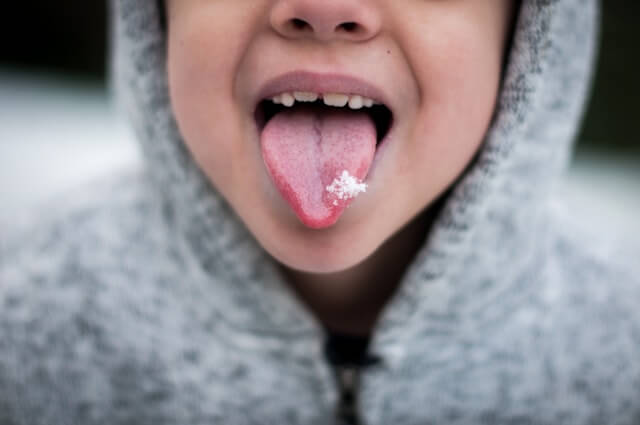Are you struggling with oral thrush? Do you notice some creamy white patches that build up on your tongue, cheek and throat making it difficult for you to eat? Worry no more as we shall In this article be discussing different treatment options that can help you deal with oral thrush once and for all.
Oral thrush or oral candidiasis is a yeast infection, the treatment of which is by using antifungal medications.
Common Symptoms Of Oral Thrush
The common symptoms of oral thrush are:
- Redness and pain under your dentures
- Irritation or soreness inside the mouth and throat
- Tastelessness or unpleasant taste in the mouth
- Cracks at the corners of the mouth
- White patches or spots in the mouth
- Pain while eating or swallowing
Causes Of Oral Thrush
Oral candidiasis is caused by a group of yeast known as candida. These organisms are normal commensals found in the mouth throat and digestive tract.
Oral thrush develops when these organisms are disrupted and caused to grow out of control.
Risk Factors For Oral Thrush
The following are responsible for increasing the chance of developing oral thrush:
- Compromised immune system as a result of illnesses like HIV/AIDS, cancer treatments
- Certain autoimmune diseases, uncontrolled diabetes, iron deficiency, vitamin B12 deficiency
- Long-term antibiotic use
- Poor oral hygiene
- Poorly fitting dentures
- Inhaled corticosteroids
- Certain health conditions like organ transplantation and lack of vitamin B
- Illness such as diabetes, HIV/AIDS, Cancer, and other immune-weakening illnesses
- Smoking and excessive alcohol intake
- Age: Elderly and babies
Treatment Options for Oral Thrush
Oral thrush usually does not cause serious problems except in cases where the affected individual’s immune system is weakened.
The Centre for Disease Control and Prevention recommends the use of antifungals to treat oral candidiasis. These antifungal medications can come in the form of gels, lozenges, tablets or injections.
Common antifungal medications used in the treatment of oral thrush include the following.
1. Clotrimazole
Clotrimazole lozenge can be used for oral thrush treatment. The lozenges are administered orally and allowed to dissolve slowly over a period of time. It can be used by both adults and children 3 years old and older. Children younger than 3 years should not be given clotrimazole lozenges as they may not be able to use lozenges safely.
Common side effects of using clotrimazole include nausea, vomiting, itching and altered sensation in the mouth.
It is important to note that you should not use this medication without a doctor’s prescription.
2. Miconazole
Miconazole is another antifungal medicine used in the treatment of oral thrush. It stops the growth and spread of fungi that cause oral thrush. It falls into the category of prescription only medications and is administered orally.
This antifungal comes in the form of oral gel or buccal tablet. Apply the oral gel to the site where the infection is and hold it in the mouth for as long as possible before swallowing. If you are using the buccal tablet, place it on the upper gum and hold until it sticks there. Do not crush, chew or swallow it.
Treatment is usually done in the morning after brushing your teeth. For younger children, mouth gel is applied inside each cheek and tongue.
Even after the thrush has cleared, it is advisable to finish the medication as prescribed by your doctor.
To avoid re-infection in babies, ensure you sterilise all feeding equipment your baby may have come in contact with, including toys and dummies. Again, you should speak with your doctor before combining Miconazole with any other medicines or herbal drugs.
3. Nystatin
Nystatin, stops the growth of fungi that cause oral thrush. Oral dosage forms include suspension and tablets (lozenges).
If you are using the oral suspension form, you should observe the following steps:
- Ensure you shake the bottle well
- Measure out the correct quantity as directed by your doctor or health care provider
- Place the medicine in your mouth and swish it for about 1 minute before swallowing.
- Do not eat food or take any drink for 30 minutes to prevent washing off the medication
Nystatin liquid is effective as it starts to work around 2 days after you begin taking it. The oral suspension typically works by creating holes in the cell membrane of the fungus, causing the contents to spill out, destroying the fungus, and bringing about a remedy.
Nystatin lozenges should dissolve slowly in the mouth while you keep swallowing saliva. Don’t chew or swallow the lozenge and avoid giving it to children who cannot handle lozenge safely.
Nystatin is generally a suitable treatment for oral thrush in kids and adults.
Before deciding to stop Nystatin, you may need to talk to your doctor. Also, it is advisable to take the complete course of the medicine even after you start to feel better.
4. Fluconazole
Fluconazole is an oral antifungal medication that takes about 7 to 14 days to cure oral thrush. This medication is typically once daily, but your doctor may adjust the dose depending on certain factors.
Ensure you consult your doctor before taking this medication. Also, let your healthcare professional examine you before recommending any anti-fungal treatment. This helps you find the suitable one for you, as they are in gels, liquids, tablets, or lozenges.
Safe Oral Thrush Treatment For Pregnant Women
Nystatin is considered safe for pregnant women with oral thrush. However, it is best to take medication during the second trimester because the risk of miscarriage is less during that period.
Your doctor can also prescribe an effective antifungal gel to help fight the thrush. Clotrimazole is also safe during pregnancy. However, you must consult your doctor first.
Effective Thrush Treatment For Children
Nystatin suspension is commonly used to treat oral thrush in children. The antifungal medication is typically administered directly to the affected areas in the mouth using a sponge applicator or dropper.
However, it is paramount that you administer the correct dosage and employ the proper application method. The best way to achieve these is by consulting a doctor before treatment.
Oral thrush in children isn’t a serious problem.
Reliable Treatment For Babies
Babies who have oral thrush can be treated with nystatin drops as prescribed by a doctor. it should be applied directly to the affected areas in the baby’s mouth using a dropper several times daily, including on the cheeks and tongue.
However, if your baby’s oral thrush is mild, it might clear up. Regardless, you must still consult your doctor to know whether to administer the medications.
How To Prevent The Fungi Infection
You can prevent oral thrush by doing the following:
- Brush your teeth regularly or at least two times daily
- Take time to floss at least once daily
- Observe proper denture care if you are a denture wearer
- Visit your dentist regularly
- Cut down the intake of foods prepared with yeast and sugar
- Treat chronic health issues
- Avoid smoking tobacco or related products
Conclusion
Oral thrush treatment using antifungal medications is usually quick in people with strong immune system. For individuals with other systemic illnesses like diabetes and HIV/AIDS, it is important to treat the underlying conditions as well. If not it will be very difficult to get rid of the yeast infection. Treatment of oral thrush in people with reduced immune system may take longer time to achieve compared to those with strong immunity.
Please, note that you must consult a certified health care professional for proper diagnosis and treatment if you suspect that you have oral thrush.









